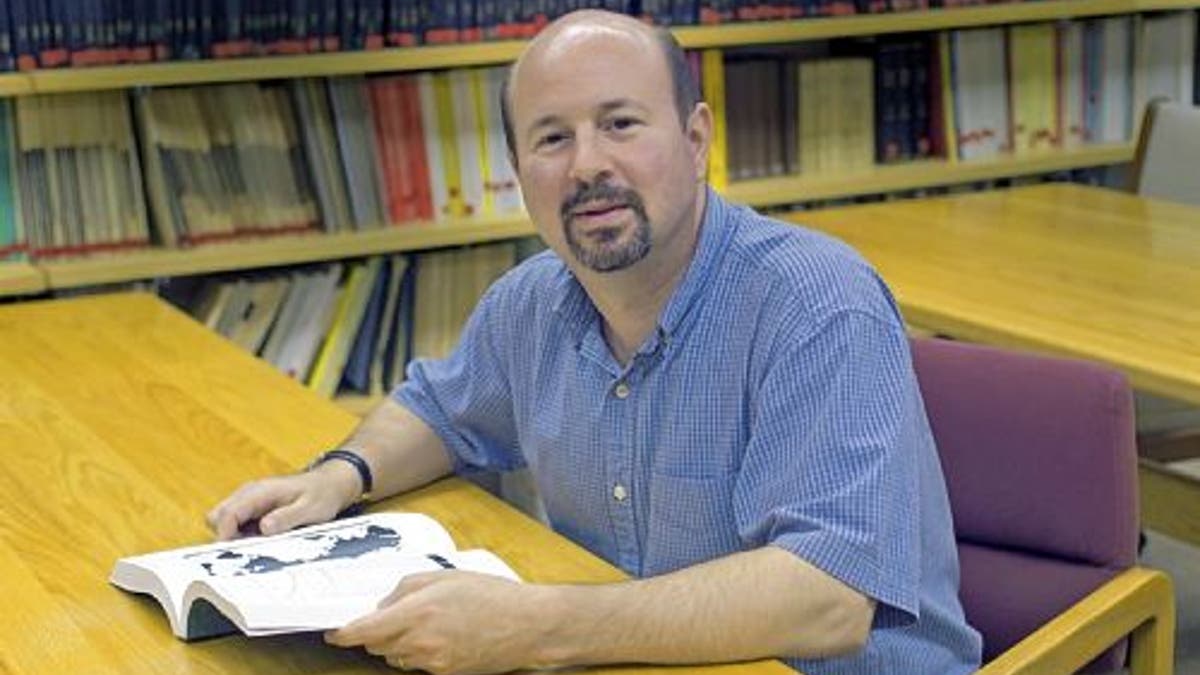
Penn State climate scientist Michael Mann
Michael Mann, the author of a notorious scientific study that is a tent pole of global warming public policy, has been found innocent of charges of improper conduct.
Once again.
Mann's seminal work was a 1998 climate study that showed a sharp, hockey-stick-shaped increase in the world's temperatures based on an analysis of age rings in trees. Despite ongoing criticism, the study formed the backbone of global warming theories -- until leaked e-mails from top climate scientists cast fresh doubt on Mann's methodology and integrity, notably "the trick" he used to make his data so compelling.
A group of six of Mann's Penn State colleagues found him innocent of 3 out of 4 charges on February 3, but the investigative panel requested a deeper, more thorough look into whether his conduct deviated from standard scientific practice.
So the panel asked Mann five questions, spoke with his boss, and interviewed three other climate scientists. Case closed.
"The Investigatory Committee, after careful review of all available evidence, determined that there is no substance to the allegation against Dr. Michael E. Mann," the RA10 Inquiry Report stated.
The committee did not speak with Steven McIntyre, the most outspoken critic of Mann's work, even though Mann was asked to responded to several of his comments. Lisa Powers, director of information for Penn State, told FoxNews.com that McIntyre's comments were already "well known and publicly available."
"The committee stayed with academics at well-known institutions," Powers explained. "Please recall that the committee was not charged with investigating the science of climate change, but rather whether any research misconduct had occurred."
Mann was elated to be cleared. "I want to express my gratitude to the scientists and academics who conducted Penn State's investigation, which required them to review and analyze voluminous written materials and conduct multiple interviews. I am pleased that they and I can now return to our research without further distraction."
Nevertheless, one distraction remains: In April, FoxNews.com reported that the inspector general at the National Science Foundation, the primary funder of the research into global warming, would determine whether Penn State's investigation is adequate.
At the time, the Office of the Inspector General confirmed that it would review the misconduct charges. A spokeswoman told FoxNews.com that "in accordance with our research-misconduct regulation (45 C.F.R. part 689), when the OIG is provided with an institution's investigation report, we review it for fairness, accuracy and completeness" -- issues the investigation has already been faulted for.
The report into Mann's activities is dated June 4, 2010, although it wasn't released until July 1, possibly to allow the inspector general to review the findings. However, due to the 4th of July holiday, no one was available at the inspector's office to explain whether the agency had seen the report or agreed with its findings.
Several other government investigations have already exonerated the scientists involved in the climate-data scandal widely called "climate-gate," though each investigation has brought its own controversy.
Most recently, math guru David Hand, president of Britain's Royal Statistical Society, verbally slapped Mann in mid-April following a British investigation into the leaked climate-gate e-mails. Hand told a London paper that Mann's research would have shown less dramatic results if more reliable statistics had been used.
At the time, Mann refused to take such criticism lying down, telling FoxNews.com that Hand's comments were "widely misinterpreted and misreported." Mann pointed out that his work "was in fact reviewed by the U.S. National Academy of Sciences, the highest scientific authority in the United States, back in 2006 in a report titled 'Surface Temperature Reconstructions for the Last 2,000 Years' -- and our work was given a clean bill of health."
"In fact," Mann added, "the statistician on the panel, Peter Bloomfield -- himself a member of the Royal Statistical Society -- came to the opposite conclusion of Mr. Hand."
Kerry Emanuel, an MIT professor who served with Hand on that government investigation, told FoxNews.com at the time that the controversy over the methods used in the hockey stick graph were simply a misunderstanding.
"As a scientist the difficulty with the hockey-stick graph is that the instrumental record is pretty good but it's only 150 years old. The graph tries to go back 1,000 years and has to use other techniques that are inferential and have some uncertainty about them. Where they overlap the instrumental data they mesh. But there is some uncertainty about the data." he said.
Indeed, Mann told the BBC on June 28 that other climate scientists have over the years placed far more emphasis on his work than he had intended. "I always thought it was somewhat misplaced to make it a central icon of the climate change debate," he told the news agency.
Overstating the importance of Mann's climate data seems to be an ongoing problem.
At a press conference following the National Academy of Sciences report that validated his work in 2006, chairman Gerald North of Texas A&M university pointed out that “we roughly agree with the substance of their findings.”
North noted that any overstatement of the results wasn't Mann's fault: “The community probably took the results to be more definitive than Mann and colleagues intended.”
Panel member Curt Cuffey had a similar story, remembers Mann. At the time Cuffey had said, “it was really the first analysis of its type -- so it's not surprising that they could have probably done some detailed aspects of it better. But it was a really remarkable contribution, and basically gave birth to a debate that's ongoing that's really teaching us a lot about how climate has changed.”
Ongoing debate or settled science? With regard to climate change, only one thing seems certain: the debate will continue.
